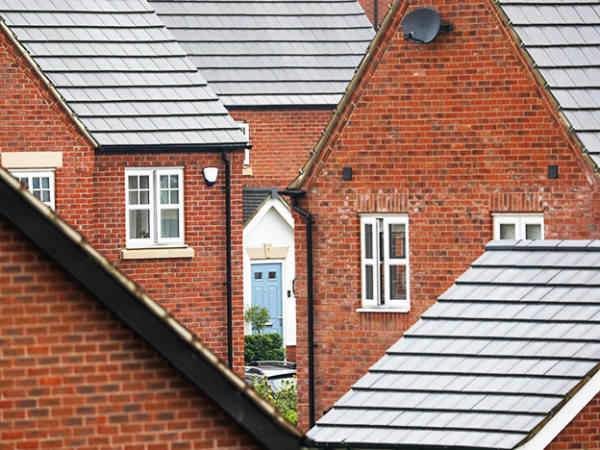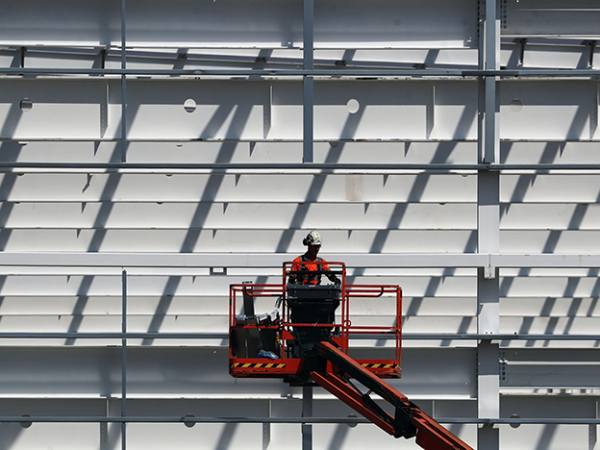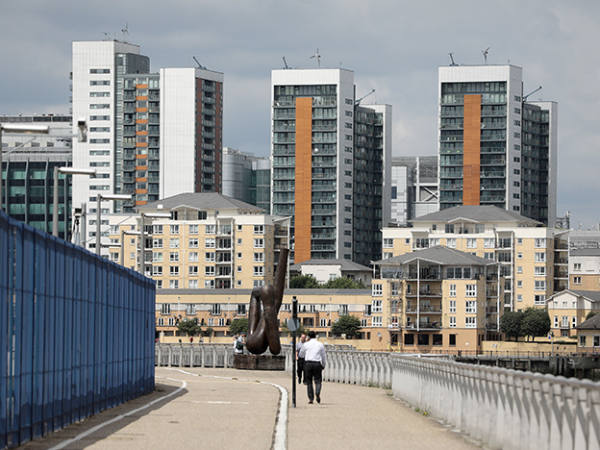- Although house prices are moderating mortgage costs have gone up
- If you wait you might be able to buy a home more cheaply down the line
- If you are a cash buyer and or intend to stay in the property for a long time it may still be a good idea to buy now
After years of rises, house prices have gone into reverse. The latest Nationwide House Price Index shows prices fell 1.4 per cent between October and November – the third consecutive monthly fall, and the biggest drop since June 2020. While this is not good news for property owners and sellers, it should in theory be good for buyers.
However, most would-be purchasers will suspect it might be better not to buy just yet. Most obviously, if you buy now, the value of your property could fall further. Property website Zoopla and estate agent Knight Frank both forecast house prices will fall by up to 5 per cent next year, and the latter expects that they will fall a further 5 per cent in 2024. Similarly, the government Office for Budget Responsibility has forecasted a drop of 9 per cent between now and autumn 2024. Others, such as Capital Economics, think falls will extend into double-digit territory.
"Money and credit statistics from the Bank of England (BoE) once again show signs of a housing market on the brink of a significant dip, if not a crash," says Karen Noye, mortgage expert at Quilter. "The latest figures reveal that mortgage approvals for house purchases fell to 59,000 in October, down from 66,000 in September... if the level of demand continues to decrease we will likely see a subsequent reduction in house prices and a switch from the seller's market of recent years to a buyer's market."
The logic of waiting for a few months therefore makes sense – and Noye says it makes particular sense for first-time buyers, especially if they live with family and have few outgoings. "They would also have the opportunity to build a bigger deposit which would help with mortgage affordability and product options when the time comes," she adds.
Mortgage affordability will play a key role in the months ahead. Mortgage rates are affected by government bond yields, and remain at their highest levels since the financial crisis after September's 'mini' Budget caused the prices of UK government bonds to fall and their yields to rise. The average two-year fixed mortgage rate rose from 4.74 per cent on the morning of the statement to a peak of 6.65 per cent just a few weeks later. This has since fallen back but, as of late November, was still 6.14 per cent for two year fixed mortgages and 5.95 per cent for five year fixed mortgages.
For existing borrowers, that means higher mortgage payments for those who need to remortgage or who are already paying tracker or variable rates. For new entrants, "higher interest rates mean tighter affordability assessments as lenders increase their stress rates as interest rates rise, meaning borrowers are unable to borrow as much," says Noye. "While house prices may fall considerably, mortgage rates are likely to take a while longer to reduce as the BoE continues [to try] to reduce inflation by hiking interest rates. Waiting so you pay a lower interest rate may be a good idea."
But existing borrowers do not have that luxury. More than 300,000 borrowers per quarter will reach the end of their current deals over the next year, according to BoE data.
"We have seen people opt for a tracker mortgage as current rates are cheaper than fixed rates," says James Hymers, wealth manager at Raymond James, of recent remortgaging trends. "There is no early redemption [charge] on tracker mortgages so you can jump to a fixed rate in the future when rates may be more favourable. But you run ride the risk of increased interest rates in the future."
The intersection between house prices and mortgage rates could be crucial to the months ahead. Because mortgage rates rose so quickly in the aftermath of September's fiscal statement, and because the central bank is now implying it will not raise rates as much as markets have factored in recent months, borrowing rates may have already peaked. But lenders reduce rates more slowly than they raise them – particularly when the extent of BoE rate hikes is not known for certain.
Capital Economics' Andrew Wishart said in early December that there could be downside risks to its prediction of a 12 per cent fall in prices if persistently high mortgage rates prevent would-be new buyers from stepping in to take advantage of price drops.
"If prices adjust more quickly, when mortgage rates are higher, there could potentially be a more rapid and larger fall in prices than we are forecasting," he said. Though it is only one data point, the latest drop in the Nationwide index, of 1.4 per cent, was larger than consensus expectations.
If you are an existing home owner who recently bought at a high price and a fall in prices results in the value of your home being considerably diminished, you might fall into negative equity. "If this is the case [but you still want or need] to move home you need to be able to repay the difference between the mortgage and the value of the home," explains Noye.
You would require savings or assets which you could liquidate reasonably easily.
It can be difficult to remortgage in this context – many lenders won’t let people with negative equity switch to a new mortgage deal when their existing one ends and instead move them onto their standard variable rate.
Downsizing and other factors
While downsizing might look attractive at a time when bills are rising, doing so when house prices are falling is not a good idea. If, for example, your £400,000 home has shed 10 per cent of its value, and you buy a home that was worth £250,000 but had also fallen 10 per cent, it would only achieve a saving of £25,000 – although this is not factoring in the gains made over the course of ownership of the existing property.
Again, for those who are selling but not looking to buy another home worth at least the equivalent value it may make sense to wait. If you need to move, for example, because you have a new job elsewhere, you could let your property and move into rental accommodation for the time being near your new job. However, rental income is taxable and could push you into a higher tax band. And when you eventually sell the property some of what you get may be liable to capital gains tax as you owned it for a period when it was not your primary home.
Another factor to consider is overall transaction volumes. Homeowners are reluctant to sell at a time of falling prices – and with more UK owners now mortgage-free than holding a mortgage, the prospect of forced selling is limited somewhat. Forced sellers among those with mortgages may also be limited by the tigher lending standards in place since the financial crisis. And with affordability still stretched because of higher mortgage rates, first-time buyer numbers are dropping, too - all of which means a lack of transactions could help stem overall market declines.
But the UK market is not uniform, so regional differences are to be expected. Capital Economics expects the largest fall in prices in London, where affordability has become most stretched and where prices have risen by a proportionally greater amount over the past 12 years.
At the same time, Wishart notes that the housing shortage is most pressing in London and the South East, which could limit the damage. The prime central London market may also hold up better, particularly if sterling weakness encourages more overseas buyers.
One area that looks different from the financial crisis is the question of flats versus houses. In 2008-09, flat prices fared worse than houses. But cheap borrowing has seen house prices accelerate more quickly in recent years. "The disparity between flat and house prices, combined with the return to offices, means flat prices may hold up a little better [this time]," Wishart said on a Capital Economics webinar at the start of December.
Reasons to buy now
If you live in rented accommodation and rent is being increased it might be better to buy sooner rather than later. "If you find a property that fits your needs and requirements for the longer term and is affordable, getting onto the property ladder and buying your own home may be beneficial in the long run as you will be paying your own mortgage back as opposed to someone else's," says Noye.
If you wait too long to buy a property prices might start to rise again. "You won't know that prices have reached the bottom until they start rising again, at which point buyers who have been holding off will start pushing prices up again," says Sarah Coles, senior personal finance analyst at Hargreaves Lansdown.
An environment of falling house prices is likely to mean that you are able to negotiate better deals on house purchases. "Buyers, sensing that the balance of power is tilting ever further in their favour, are frequently asking for – and getting – significant price reductions," says Jonathan Hopper, chief executive officer of Garrington Property Finders. "Asking prices are starting to come down too as sellers compete for the attention of an increasingly rare and powerful group - proceedable buyers."
Negative equity is only really a problem you need to sell or remortgage in the short term. If you plan to stay in the property for a long time, a near term dip in house prices might have recovered by the time you come to sell it. And if you are a cash buyer you do not have the problem of high mortgage rates and negative equity.
If you are an existing home owner moving to a larger property – perhaps your second home – you might still benefit from a fall in house prices. For example, if the value of your £250,000 home has fallen 10 per cent in value, and you buy a property that was worth about £400,000 but which has also fallen 10 per cent, in absolute terms the saving on your new home is greater than the decline in your existing property's price.
However, upgrading to a more expensive property may mean that you take on a larger mortgage than you had previously and at a higher rate, so consider if you can afford this. And if house prices continue to fall you could end up in negative equity.











